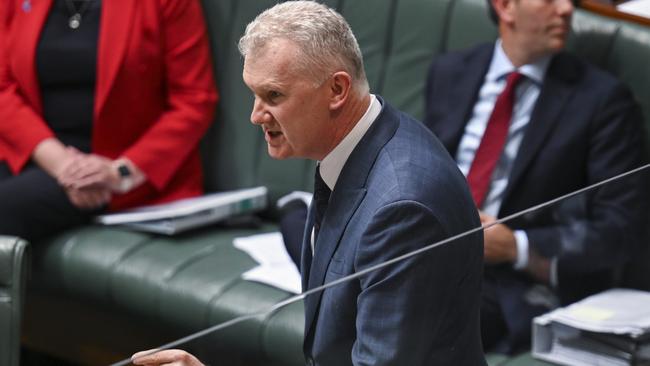IR breakthrough a victory for Labor
Despite a wall of hyperbolic and at times hysterical opposition from business, the government will meet its self-imposed deadline

Federal Labor’s breakthrough on industrial relations is a significant political and policy achievement for the six-month-old Albanese government.
Despite a wall of hyperbolic and at times hysterical opposition from business lobbyists and shock-jock alarmism from the Coalition, the government will meet its self-imposed deadline to have the bill legislated before Christmas.
That the Prime Minister and his Workplace Relations Minister Tony Burke were able to cut a deal without sacrificing the bill’s most contentious element – the single-interest multi-employer bargaining stream – not only speaks volumes about their negotiating skills but also the dynamics of the new parliament.
Courtesy of separate agreements with ACT senator David Pocock and the Greens, the government will enact policy changes that should not only help lift wages but remove provisions designed by the Coalition to hurt unions or be exploited by lawyers for well-resourced employers to game the system. It also offers an overdue evidence-based vehicle to lift welfare payments.
This is what should happen when there is a change of government: laws and policies are altered to reflect the election result.

That said, while Labor has a mandate to get wages moving, its critics say it does not extend to multi-employer bargaining, pointing to comments by Jim Chalmers that Labor would not back “industry-wide” bargaining.
Never allowing nuance to interfere with a quality scare campaign, Labor’s opponents claim this as a major gotcha. Newsflash: multi-employer bargaining is not industry-wide bargaining. Even if so desired, unions, representing less than one in 10 private sector workers, do not have the reach to conduct industry-wide strikes. Indeed, as Svizter showed through its threatened indefinite lockout of tug boat crew, employers are the ones willing to use Labor’s Fair Work Act to cause major economic harm and shut down industries, not organised labour.
Ditto overblown claims about union officials crashing through the doors of mum and dad suburban small businesses. Unions don’t have the reach or inclination to engage in shopping strip militancy. You only have to pause and think to realise how comical these doomsday scenarios are.
Likewise the changes will not return the labour market to a 1970s-style system. Don’t take my word for it. Such claims have been dismissed by conservative labour market economist Mark Wooden, hardly a raving commie.
But then certain participants in our industrial relations discourse have rarely allowed bland facts to get in the way of catastrophising.
This deal won’t alter their parallel reality.





